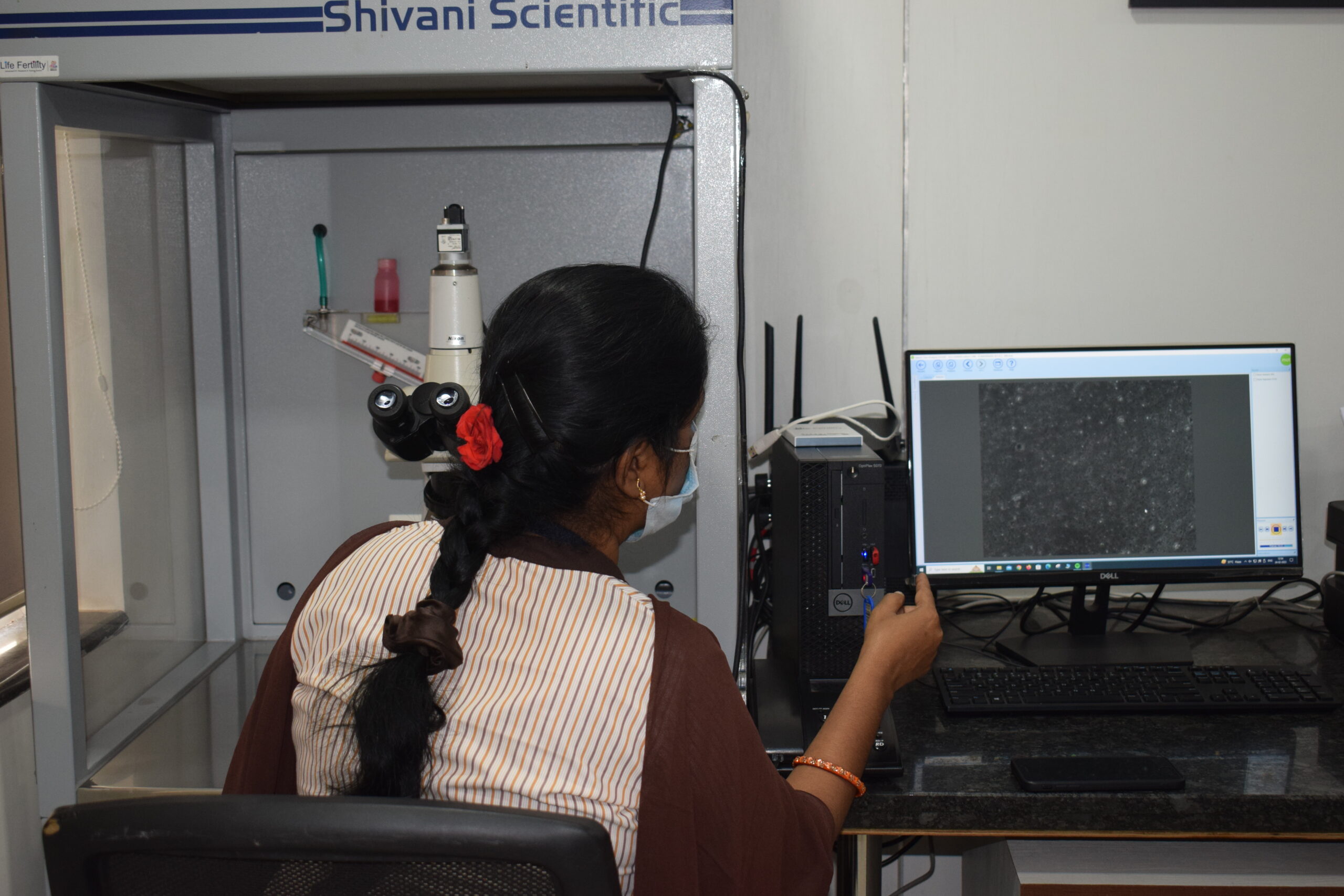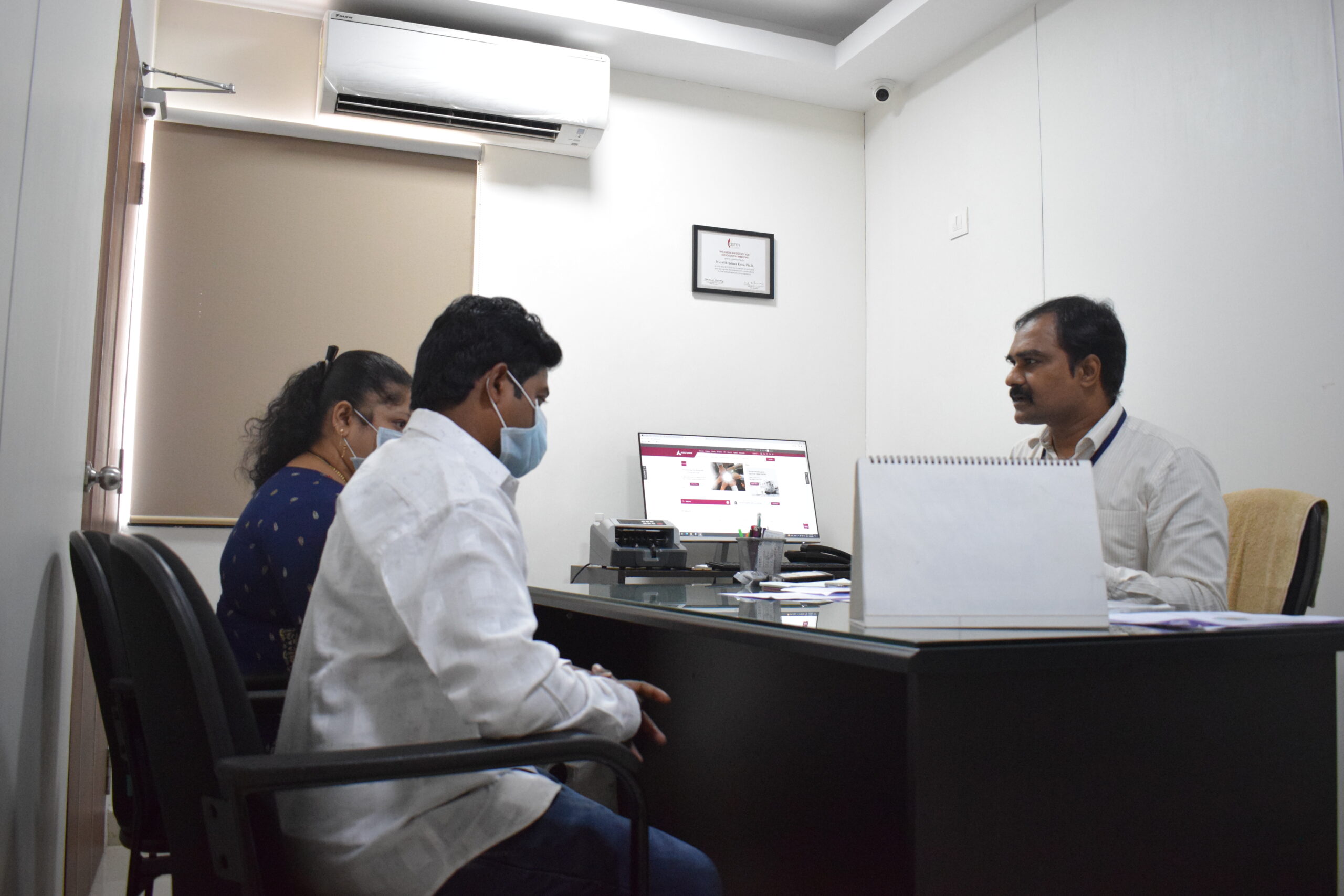Intra Uterine Insemination (IUI)
IUI (intrauterine insemination) is a type of artificial insemination. With IUI, the sperm is collected, washed and concentrated so that only high-quality sperm remains. This sperm is placed directly into uterus with a catheter (thin tube), putting it closer to fallopian tubes. IUI makes it easier for the sperm to reach an egg because it reduces time and distance it has to travel. This increases your chance of becoming pregnant.
IUI is recommended to male having poor quality or quantity of sperms, it is less expensive and safer. IUI is an initial form of infertility treatment. This is the best treatment option in cases of unexplained infertility, ejaculation dysfunction, unreceptive cervical mucus and endometriosis etc.
Intrauterine insemination (IUI) is a fertility treatment that involves placing sperm directly into a woman’s uterus to facilitate fertilization. It is a less invasive and less expensive option compared to in vitro fertilization (IVF). IUI is often recommended for couples with certain types of infertility or for those using donor sperm.

1. Ovulation Monitoring:
Before starting IUI, the woman’s menstrual cycle is monitored to determine the best time for insemination.
Ovulation is usually predicted by tracking the menstrual cycle, monitoring basal body temperature, using ovulation predictor kits, or undergoing ultrasound monitoring.
2. Semen Collection and Preparation:
Semen is collected from the male partner or a sperm donor. The sample is then processed in the laboratory to separate the healthy sperm from the seminal fluid.
The prepared sperm is concentrated to increase the number of motile sperm and remove potentially harmful substances.


3. Insemination Procedure:
The insemination procedure is typically performed in the fertility clinic.
A thin catheter is used to introduce the prepared sperm directly into the woman’s uterus through the cervix.
This process bypasses the cervix and places the sperm closer to the fallopian tubes, where fertilization takes place.
4.Post-Insemination Care:
After the procedure, the woman may be advised to rest for a short period.
Some fertility clinics may recommend hormonal medications, such as progesterone, to support the uterine lining and improve the chances of successful implantation.


5. Follow-Up:
A pregnancy test is usually conducted about two weeks after the IUI procedure to determine whether fertilization and implantation have occurred.
Book an Appointment
FREQUENTLY ASKED QUESTIONS
What is IVF treatment?
In-Vitro-Fertilization (IVF) is a type of Assisted Reproductive Technology (ART) that helps you get pregnant if you are not able to do so naturally.
When is the right time to start IVF treatment?
Your doctor will explain the best time to start the treatment after the initial consultation, examination, and blood tests. Your clinician may start your treatment on the 2nd or 3rd day of your period.
Is IVF safe & Painful?
IVF is a very safe and effective treatment option and with the latest advancement in medical technology, IVF results have improved significantly.
IVF is not at all painful because the injections used for IVF are purified and injected in subcutaneous form. The egg collection process is done under light sedation which is also not painful. At the time of embryo transfer, anesthesia is not given but it is a 2 to 5 minutes process that hardly causes any pain. Every patient is different; therefore the process will differ from patient to patient. However, when it comes to IVF injections, they are thin and easy and do not require an intervention. They can also be administered under anesthesia if required.
What People Says about Life Fertility Clinic
Google Reviews
What People Says about Life Fertility Clinic
Testimonials

Our Contacts
________
#16-1-25, RS Edifice, Coastal Battery Rd, Collector Office, Jn, Visakhapatnam, Andhra Pradesh 530002